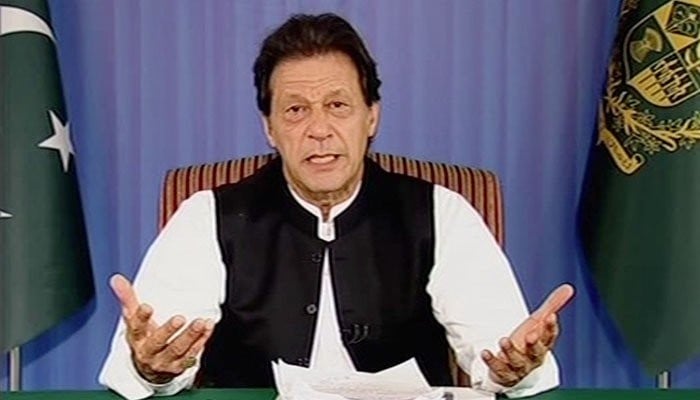
The critics are harsh, the people expecting too much too soon… that’s the muddied world of politics the Naya Pakistan must negotiate with

All new governments are compelled to lay down a 100-day agenda and, however unrealistic this might seem, are judged for it as well -- by journalists, political opponents and people at large, including their own supporters. The newly appointed PTI government is doing it on a daily basis, and is being held to account for every utterance, policy statement or task force announced.
It must feel the burden of criticism now that it is on the other side of the fence and is expected to deliver. No, it can’t go wrong even in its promises to the nation. And yet, there is no dearth of faux pas both on foreign policy and internal fronts.
With renewed pledges coming from the government’s side, each day somehow ends up as a betrayal of sorts for the media and its younger, errant cousin, the social media. To be fair, the opposition is yet to flex its muscles against the government.
Some might think the party itself is to blame for raising the performance bar so high. The voters who brought it to power feel justly frustrated for not being given a chance to celebrate the revolutionary moment they have been so privileged to see in their lifetime.
The critics have been harsh no doubt, dissecting the leader Imran Khan’s three speeches, picking on all things he missed, not caring about how well-meaning and sincere he sounded and to what degree he inspired the people of this country. That’s the muddied world of politics the Naya Pakistan must negotiate with before it can start delivering on all that it has promised.
The idealism articulated in the media is partly misplaced. The speeches and policy statements uttered so far are consistent with the party’s politics, electoral promises and manifesto (no surprise that defence policy is the last item in the last chapter in PTI manifesto, comprising no more than three bullet points). The voters have exercised their democratic right, placing PTI on the seat of power at the centre and in nearly three of the four provinces.
The PTI may have projected the entire political class except itself as inept, corrupt and not fit to rule but the fact of the matter is that it is now at the helm, having used the same instruments of democratic governance, including the parliament that it had so strongly criticised. The first 100 days may therefore be crucial for the party to lend credibility, dignity and supremacy to the parliament.
Even though the advice to the new government is in plenty, one way of doing it might be to announce a parliamentary commission to investigate charges of rigging, a claim the party can easily relate with. Besides, the challenges are huge and the only way of making a fresh start is to first establish that election was a credible exercise and the government legitimate.
Of the many freedoms that democracy guarantees, one is the freedom of speech. There have been palpable curbs on media freedom in the run-up to the election, which were construed as attempts to change the fate of election results, and continue to this day. While the statements to make the state television and radio independent are welcome, the party needs a few lessons in being tolerant of the other point of view, now that it is in government. That, unfortunately, too flows from top to bottom. In his second speech on the floor of the house, the prime minister elect lost his cool, perhaps as desired by the opposition. And then, in certain cases, trolls have been unleashed on journalists expressing opinion presumably based on some facts. Like it always happened, in ‘old’ Pakistan.
The government may find some serious challenges in the shape of Khadim Rizvi, for whom statements such as the one the prime minister made on the floor of the Senate do not matter. That is when criticism on the omission of religious extremism from PTI’s discourse starts making sense.
If the pre-election violence did not amply alert the party to address the problem of terrorism, tied closely with extremism, it must pay heed to it now that it’s in government. For this is what defines today’s Pakistan and explains its myriad problems: the dignity and respect that Pakistan seeks internationally, the tourism the government promises to promote, the cricket that Khan wants to restore are all linked with terrorism.
In the months before the election, the ruling party had aggressively adopted pragmatic ideas that it rightly thought were required to win the election. It may now find it difficult to reconcile that pragmatism with the post-election revolutionary zeal and promises, especially the patronage politics of the electable which has no connection with PTI’s ideals of change.
Read also: Not a different take
With 10 million jobs, 5 million housing units, universal education and healthcare, water, industrial and agricultural turnaround, South Punjab province, police reforms, civil service reforms and much else, the agenda is ambitious to say the least. But what needs to be understood is that the economy, foreign policy and internal stability including law and order are all linked. More importantly, these three areas must all be under civilian control for any serious policy reform to be conceived and implemented.
Hundred days into the government, the erstwhile anti-politics may well have collided with the reality of Pakistani politics, generating better insights. The comparisons with Gen. Musharraf’s accountability drive might start to appear jarring to them then. By then, the prime minister would hopefully know that the chairman of National Accountability Bureau sitting with him does not only make bad optics, it takes all credibility away from the system.